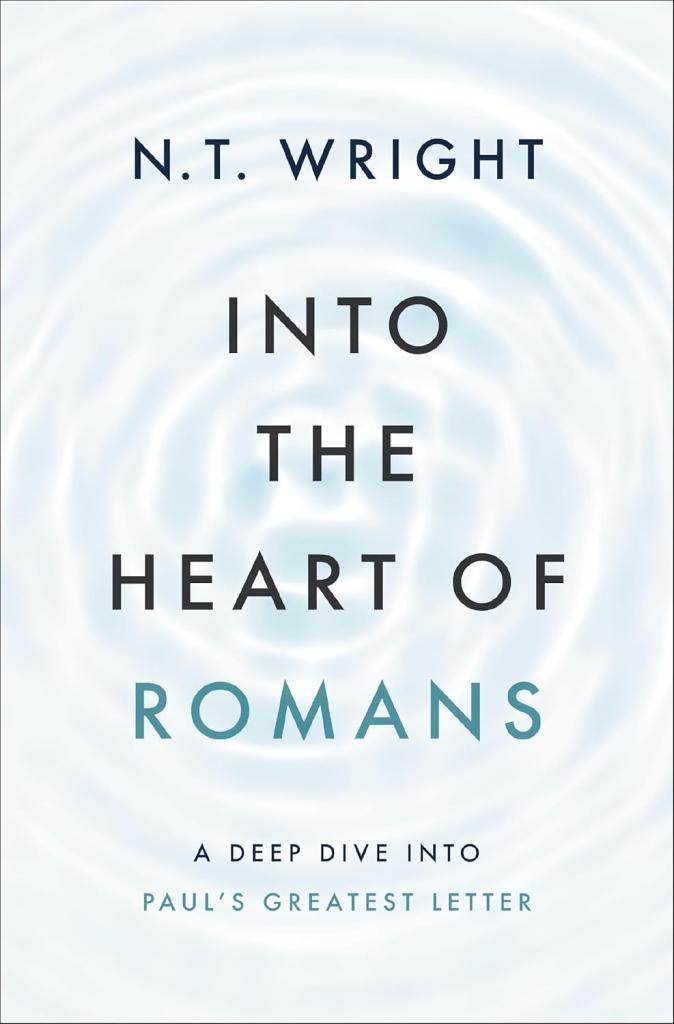We have already mentioned how awkward a literal translation of Rom. 8.28 would be, and it is proper here to emphasize that Paul very rarely talks about the believers love for God, but he most certainly does here, and this is crucial for what follows in vss. 29-30 because these verses are linked together. It is those who love God, for whom God works all things together for good according to purpose/choice (there is no modifier ‘his’ in the Greek here, but it is probable that the reference is to God’s plan or purpose). I agree that it is God who is working all things together for good, but this would be unnecessary if everything that happens to a believer was good in itself– including suffering, disease etc. I agree with Tom that we do not have here a guarantee that the believer will be protected from suffering or tragedy or even death. What we have a promise of here is that whatever happens, God will work it out for our good. On that we can be sure. But here is also the place to note. Notice at the end of vs. 28 we also have reference to those who are called. The phrase those who love God is mentioned first in the sentence, and this should be taken seriously. I take this to mean that God knows in advance who will love him when they hear and respond to the Gospel, and those are the very people God calls. Vs. 29 explains that God did not just blindly choose anyone, he called those he foreknew would love Him having been blessed with the gift of the new birth and set right, and he destined them to be conformed to the image of his Son by means of resurrection. It is crucial to note the hoti ous at the beginning of vs. 29 which clearly links it to vs. 28 and the proper way to read it is ‘for those who love God whom God called, those very ones are the ones he foreknew and destined to be conformed to the image of Christ. Note that what this text absolutely doesn’t say is that God predestined some to love him. The word predestine is connected to the process of being conformed to the image of the Son by means of resurrection. And here something must be said about doing a serious study about agape. This love which God pours into the heart of the believer (Rom. 5) is freely given and must be freely received and freely responded to. One cannot love God with all our heart mind and strength unless we do so freely, not under compulsion of predetermination. Divine Love must be freely given and freely responded to or else it is not love– it is manipulation. God’s grace is frankly not irresistible in general. This is why a text like Heb. 6 makes clear that one can receive the Good News, experience the Holy Spirit, and yet by an act of rebellion against the work of God in one’s life, commit apostasy. This is also what Paul warns against in various places including Gal. 5, but also in the Pastorals where he names two Christians who have made shipwreck of their faith…. and as John Wesley said ‘you can’t make shipwreck of something you never had. So let us allow Rom. 8.28-29 to sink in. Those loving God with their whole hearts, have been given the grace and faith to do so, but they have to willingly and freely exercise that faith. The Holy Spirit does not do the believing or loving God for us.
One more thing about vs. 29– what does Paul mean by calling Christ ‘the first born of many brothers and sisters?’ The word is prototokos, and this very same word is used in Col. 1.18 to refer to the bodily resurrection of Christ. I see no reason to think this means something else in Rom. 8.29. Tom wants to read vs. 28 to mean that God works with those who love him for the good, which is true whether this verse says so or not, but that is probably not what this sentence means judging from the Greek word order. Notice that panta precedes the word work together with, and is followed, not preceded by the reference to ‘the God’. In other words the literal way to read this is all things work together, or God works all things together, but not God works with believers for good in all things. This not only involves rearranging the word order pretty drastically, but also ignoring that God can work circumstances together in his good providence. And notice the text twice over emphasizes that it is ‘to those loving God’ that this happens, to those being called according to purpose. So in both cases the the reference is about those loving God. So, I think Tom is wrong about vs. 28 in more ways than one. And one final note tois, does not mean with, it means to those. I was relieved at least to see Tom say on p.169, that this is not about predestination to salvation. Yes indeed God foreknew in advance those he was going to shape so that he could work through them. Just so…. but before we even get to the word ‘foreknew’ we have heard about ‘those loving God’ and the natural way to read vss. 28-29 is that God foreknew those who would love Him, and planned not merely to save them but to work with them for the salvation and blessing of others. It is a mistake to read vs. 30 before attending to the details of vss. 28-29 which makes the matter clearer and in detail. And the point of vs. 30 is to make clear that God is directly involved and active in all of this– the foreknowing, the marking out (as Tom puts it), the calling, the setting right, and the glorifying. Just so, neither salvation nor vocation and ministry are self-help programs, or things God left his children to do on their own. On pp. 174-75, Tom comes to an insight that Ephes. 1 fills out further— namely since Christ is the elect one of God, it is he whom God the Father picked before the foundation of the world. We did not exist before the foundation of the world to be picked, but the Son of God did. Believers are only elect ‘in Christ’ the elect one. And this brings us to another crucial insight— election is one thing and salvation another. Christ did not need to be saved! But he was the elect one. Israel in the OT was God’s elect people but this certainly did not mean they were all, or even most of them saved. Indeed there is the concept of the righteous remnant that Paul himself mentions in Rom. 9-11. So again, it was the Son of God who was foreknown and pre-chosen before the foundations of the world to be God’s elect one and the savior of human beings. Sorry Calvin and Luther, but God did not predestine human beings to be lost or saved before they even existed. What is true is that those who are saved, have a great destiny awaiting them, being conformed to the image of the risen Jesus. Period.












 English (US) ·
English (US) ·